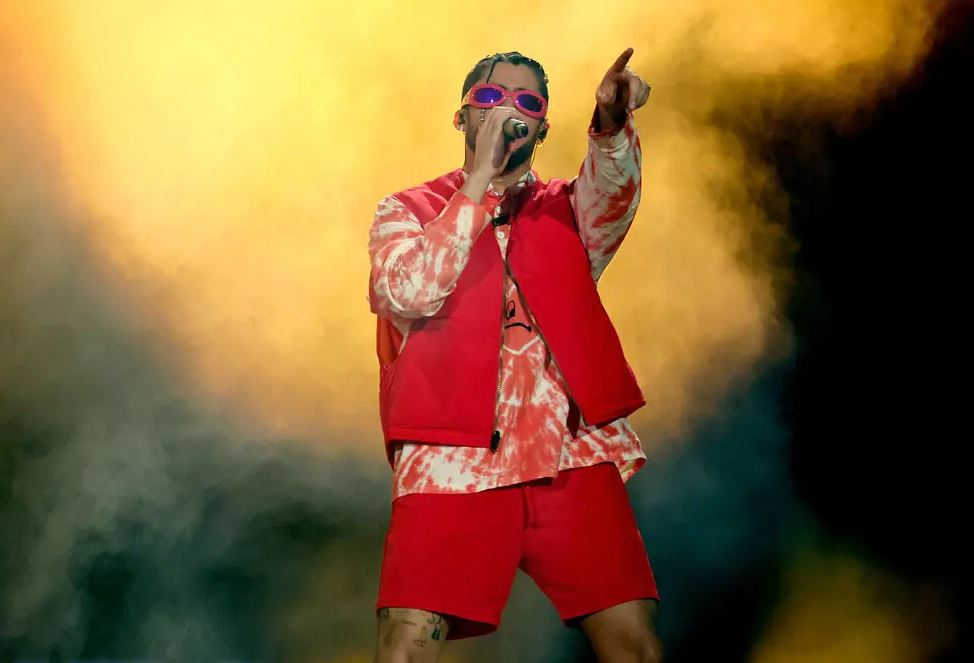The Puerto Rican superstar Bad Bunny is the most nominated artist at the 23rd annual Latin Grammy Awards, which will take place on Thursday. He received 10 nominations for his album “Un Verano Sin Ti,” which is currently the most popular album of the year and has topped the charts and dominated streaming services.
But for the Latin music industry as a whole, Bad Bunny’s success is the icing on the cake after an incredible year on streaming services and on tour. This year featured performances by artists such as the singers Karol G, from Colombia, and Anitta, from Brazil; genre-crossing innovators such as the Spanish pop disrupter Rosala; and regional Mexican bands such as Grupo Firme.
Despite its reputation as a specialised area for a long time, Latin music is steadily expanding into new markets. Streaming services are assisting musicians in expanding their fan bases to include large new audiences, who in turn are spending hundreds of millions of dollars on concert tickets.
According to the Recording Industry Association of America, sales of Latin music records in the United States hit $510 million during the first half of 2022, marking a new milestone. It is possible that sales of Latin music recordings may approach $1 billion by the conclusion of the year. Streaming accounted for 97 percent of that total, which indicates that the audience is comprised mostly of younger people who are very linked to technology. Spotify reports that fifty percent of its user base throughout the globe listens to at least one Latin music each and every month.
With sales and tour statistics that consistently match and surpass those of English-language pop giants like Taylor Swift and Beyoncé, Bad Bunny, who is 28 years old, is now the head of the current wave in Latin music. This year, no other album has spent more time on top of the Billboard 200 list than his most recent release, which stayed there for a total of 13 weeks. His two tours in 2022, one of which will be hitting arenas, and the other will be hitting stadiums, will lead the year-end worldwide touring list with roughly $400 million in combined sales, placing him in the class of heavyweights such as Taylor Swift and U2.
Bad Bunny, whose real name is Benito Antonio Martinez Ocasio and whose stage name was inspired by a costume he wore as a youngster, exemplifies a new kind of pop singer with a diverse aesthetic and widespread popularity around the globe. After making his debut in 2016, he established his career by performing as a featured guest on songs by musicians such as J Balvin and Cardi B before releasing his first studio album, titled “X100PRE,” in 2018.
Since then, he has been impossible to avoid. He appeals not just to listeners who understand Spanish, but also to admirers whose personal playlists may include include songs by hip-hop artists, K-pop artists, and artists from other genres. In the meanwhile, Bad Bunny has become a well-known brand all over the world. In addition to being vocal about the political and socioeconomic challenges in Puerto Rico, he is affiliated with the shoe brand Adidas, has wrestled in the World Wrestling Entertainment, and is slated to feature in the next Marvel superhero film “El Muerto,” which will be produced by Sony Pictures.
Lewis said that as those tickets were being sold, he was able to see in the back-end system of Ticketmaster that, for certain concerts, up to 300,000 customers were waiting to buy additional tickets, which is an indication of the very high demand for these events. Lewis said that on that day, he phoned Bad Bunny’s manager Noah Assad and told him, “Oh man, we need to hold some stadiums for next year.”
This year, the veteran Mexican rock band Maná performed as part of a residency at the Kia Forum in Inglewood, California. The band has just revealed that they would be touring arenas throughout North America in the year 2023. According to Pollstar, the Mexican banda ensemble Grupo Firme, which has performed with pan-Latin pop musicians such as Camilo and Maluma, has sold $57 million in tickets in 2022.
When it came to radio, historically speaking, singers whose primary singing language was Spanish — or any language other than English — faced a significant obstacle to their success. Nevertheless, streaming has given a way past that barrier, which has led to the success of a great deal of Latin music groups. The song “Despacito” by Luis Fonsi and Daddy Yankee, which was released in 2017 and became a great hit on YouTube, was an early indicator of this transition. Despite the fact that its popularity was largely owed to a radio-friendly remix starring Justin Bieber, “Despacito” was a tremendous smash on YouTube.
According to AJ Ramos, a veteran radio and streaming programmer who is also the director of artist relationships for Latin music at YouTube, those fans are able to navigate across a variety of musical subgenres and cultural spheres. Using himself as an example, he defines those individuals who are lovers of more than one culture as “representing the 200 percent.” He was born in the United States, spoke Spanish at home with his Salvadoran family, and was also a hip-hop enthusiast growing up.
According to Maykol Sanchez, an executive at Spotify who handles Latin artist and label partnerships, that success, which was enabled by streaming and social media and is now amply visible on tour, will only continue to continue in the future. Sanchez is in charge of developing partnerships between Latin artists and labels.

